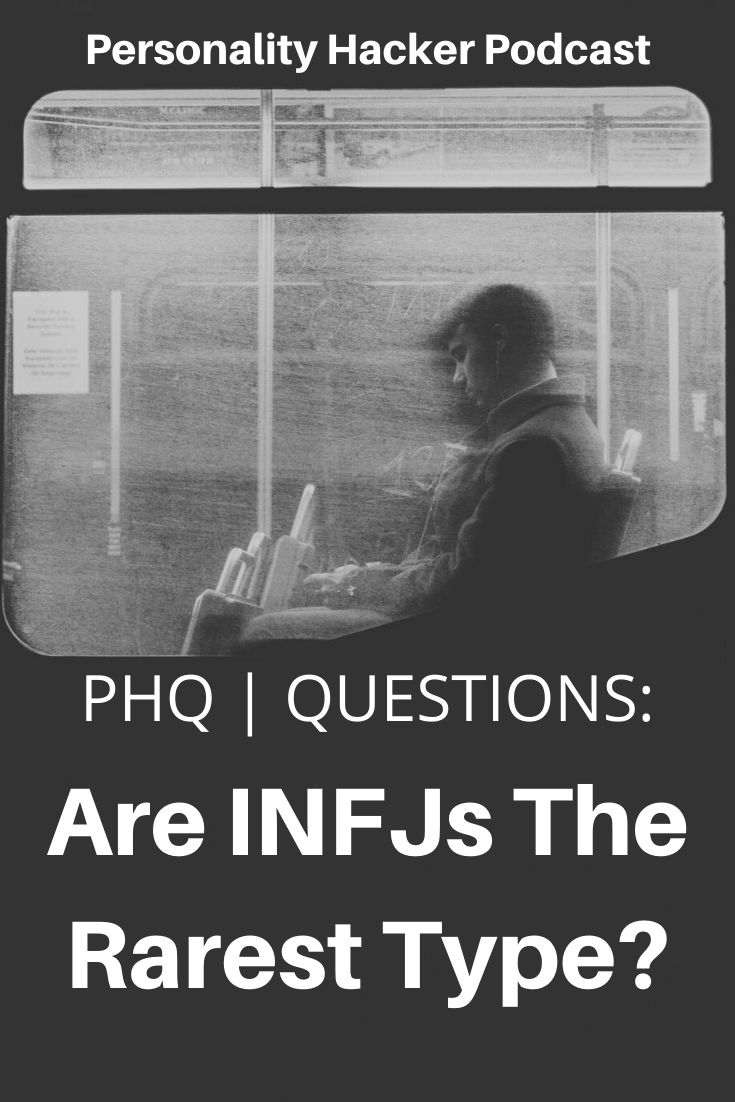Download Episode Here – right click link and select “Save Link As…”
PHQ | QUESTIONS FROM COMMUNITY: In this episode, Joel and Antonia answer a question about INFJs being the rarest type.
To subscribe to the podcast, please use the links below:
Subscribe with iTunes
Non iTunes Link
Download The Android App
Subscribe on Soundcloud
Subscribe with Stitcher
If you like the podcast and want to help us out in return, please leave an honest rating and review on iTunes by clicking here. It will help the show and its ranking in iTunes immensely! We would be eternally grateful!
Want to learn more?
Discover Your Personal Genius
We want to hear from you. Leave your comments below…



Share:
PHQ | QUESTIONS: "Perspectives" Used By INFJ vs INTJ
PHQ | QUESTIONS: Basic Model For Incremental Personal Growth
24 comments
Hello out there!!! I am so glad there are people like me. I have struggled all of my life because i could not explain how I knew what I knew..How I figured a problem out or accomplished a working plan for a complex problem. I am 78 yrs old and have always helped people it it almost a compulsion. I was always this way from the time I could remember and it feels good. I am a cheer coach and a good listener but close to the vest. I have decided that I will turn over a new page and be more open and let more people in- hit or miss I will just add that to my stock pile of connections. Nice to meet you all I really think all of us should meet and feel good together
I know. Being an INFJ is totally not fun. I think people only like the idea of INFJs and how they can read your mind and such. When they meet us, however, they just get totally weird ed out for some reason.
I totally agree. Being an INFJ is not fun. Our lives are riddled with pain and separation and excruciatingly strong emotions, some of which aren’t even our own. Even being the rarest type causes us much more pain than admiration. Our identities are fluid. We feel others pain as our own. We wither under conflict, and have a voice of self-hate inside of us. Some of these can be used as virtues, but they cause so much pain to the user that no person should ever aspire to be one.
Pain pain so much pain and suffering. I used to think I was cursed. I didn’t understand why I was made like this where I could understand everybody but they couldn’t understand me, my mother got my hearing checked as a child because she was worried that when she called me I never answered her. I was in my own little world. This past year I started getting anxiety attacks and I hate it because there are no patterns so I can’t figure it out. I always find patterns pretty much with everything except this. Just my luck. Found out I’m an infj this past year and it was like the gates of heaven were opened to me. It was one of the greatest moments of my life. Having that ahh moment. It felt like got had mercy on me and gifted me the knowledge of my whole entire existence. I have spent my whole life in confusion and not understanding. Thank god for Meyer Briggs. Now I don’t have to suffer as much because I understand. Now if I could just get my kids to take this test I would love to get inside there brain. I say this all the time but knowledge is power. Learning is fascinating.
I was very shocked, intrigued, and skeptical when I heard that INFJ’s were so rare. I thought this type might be more common than shown.